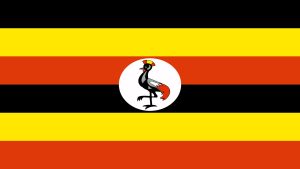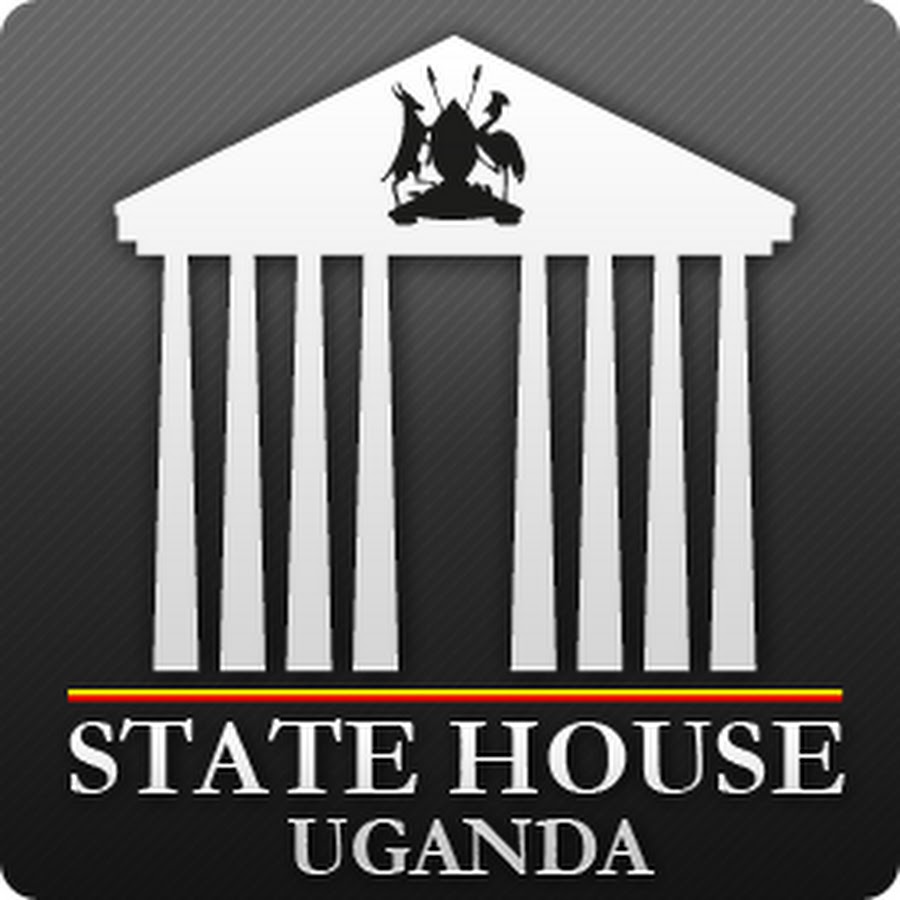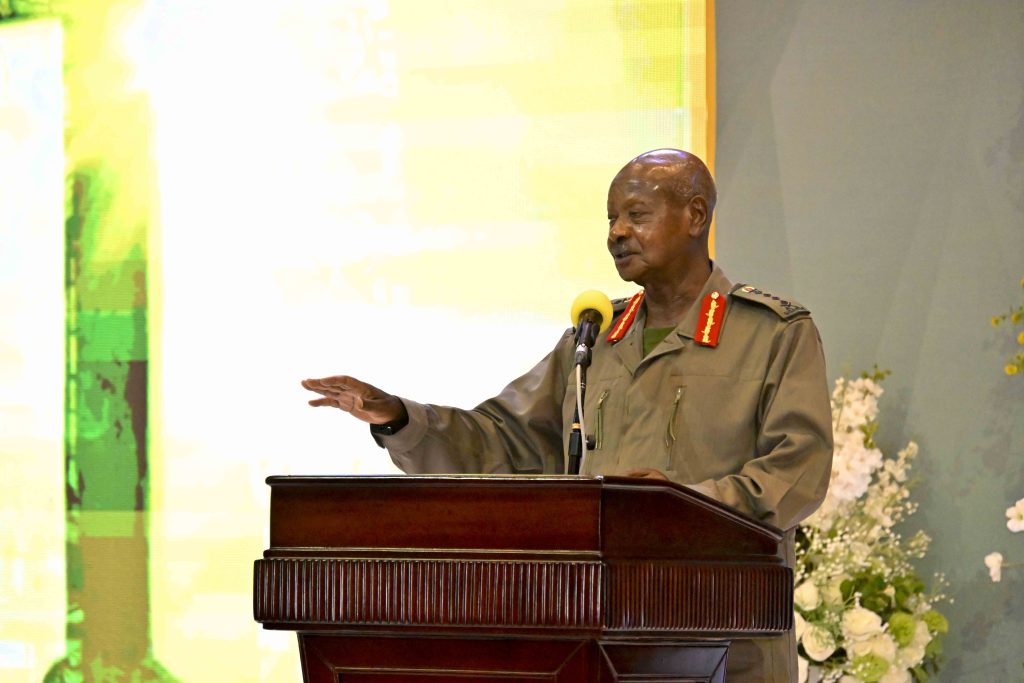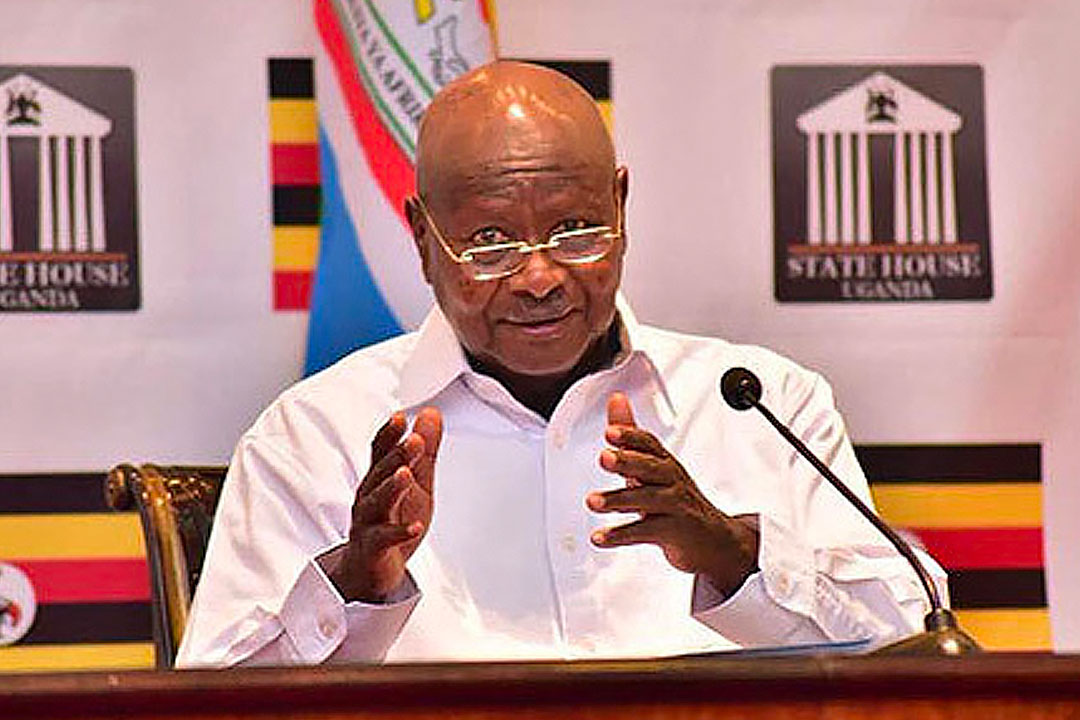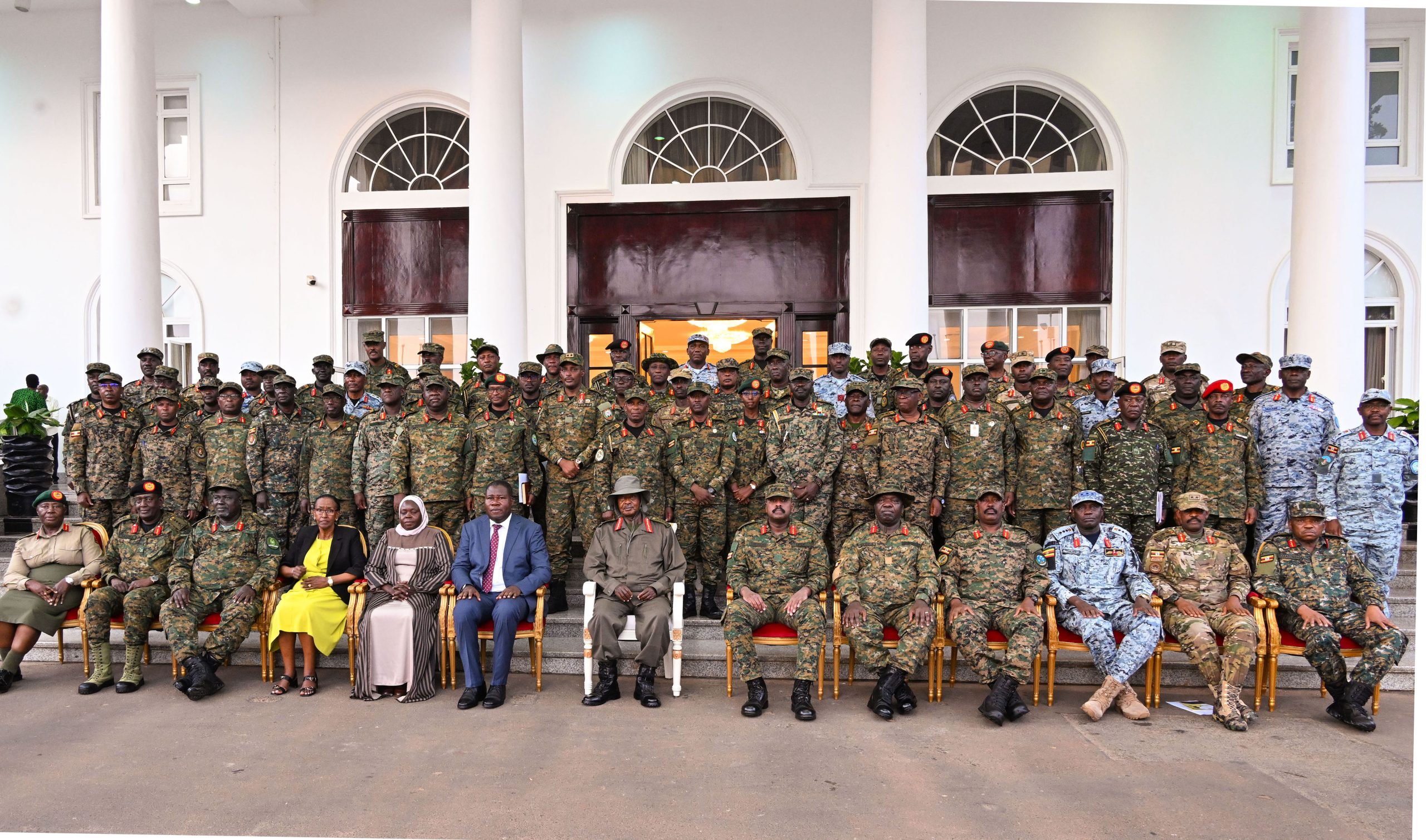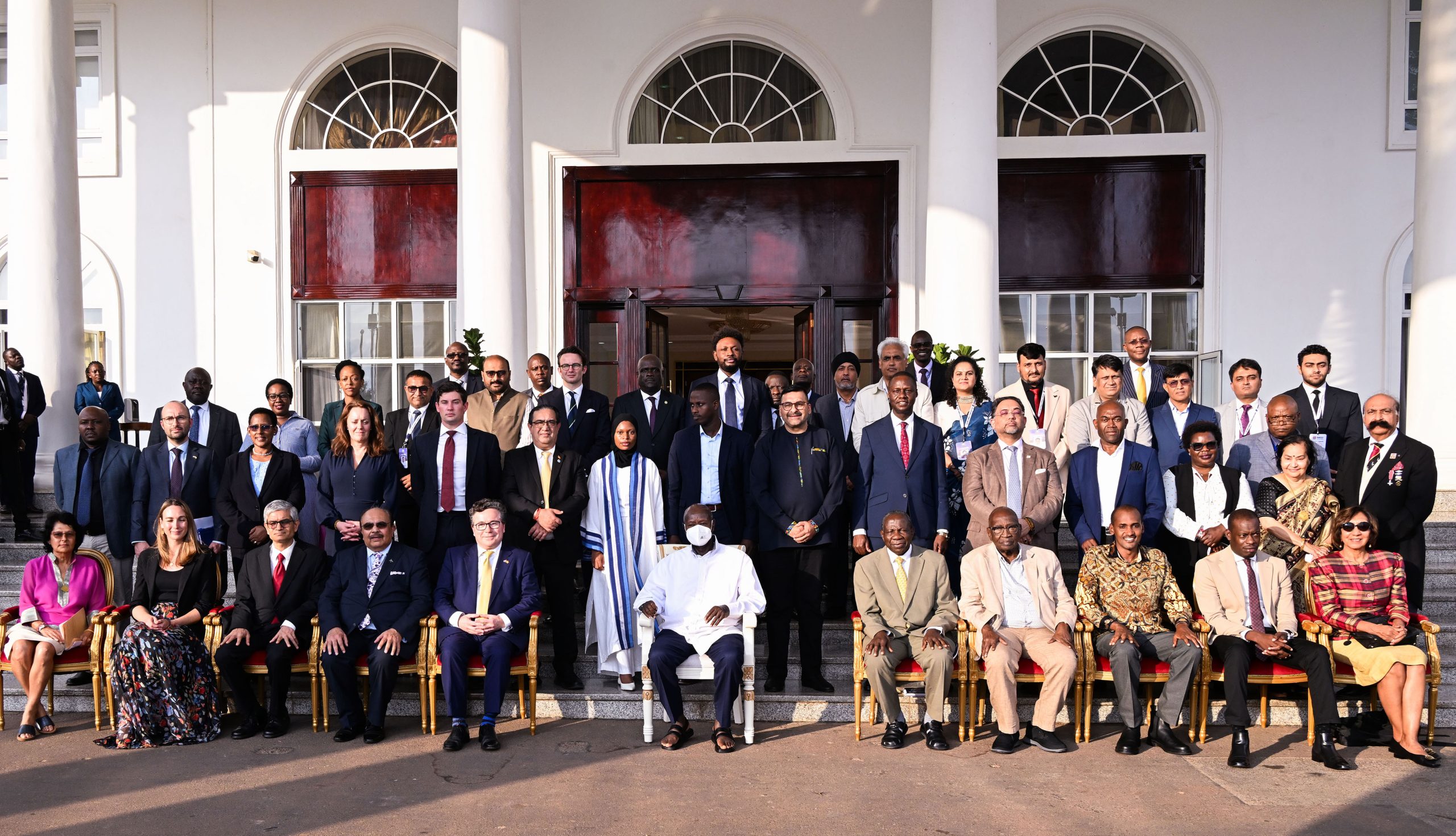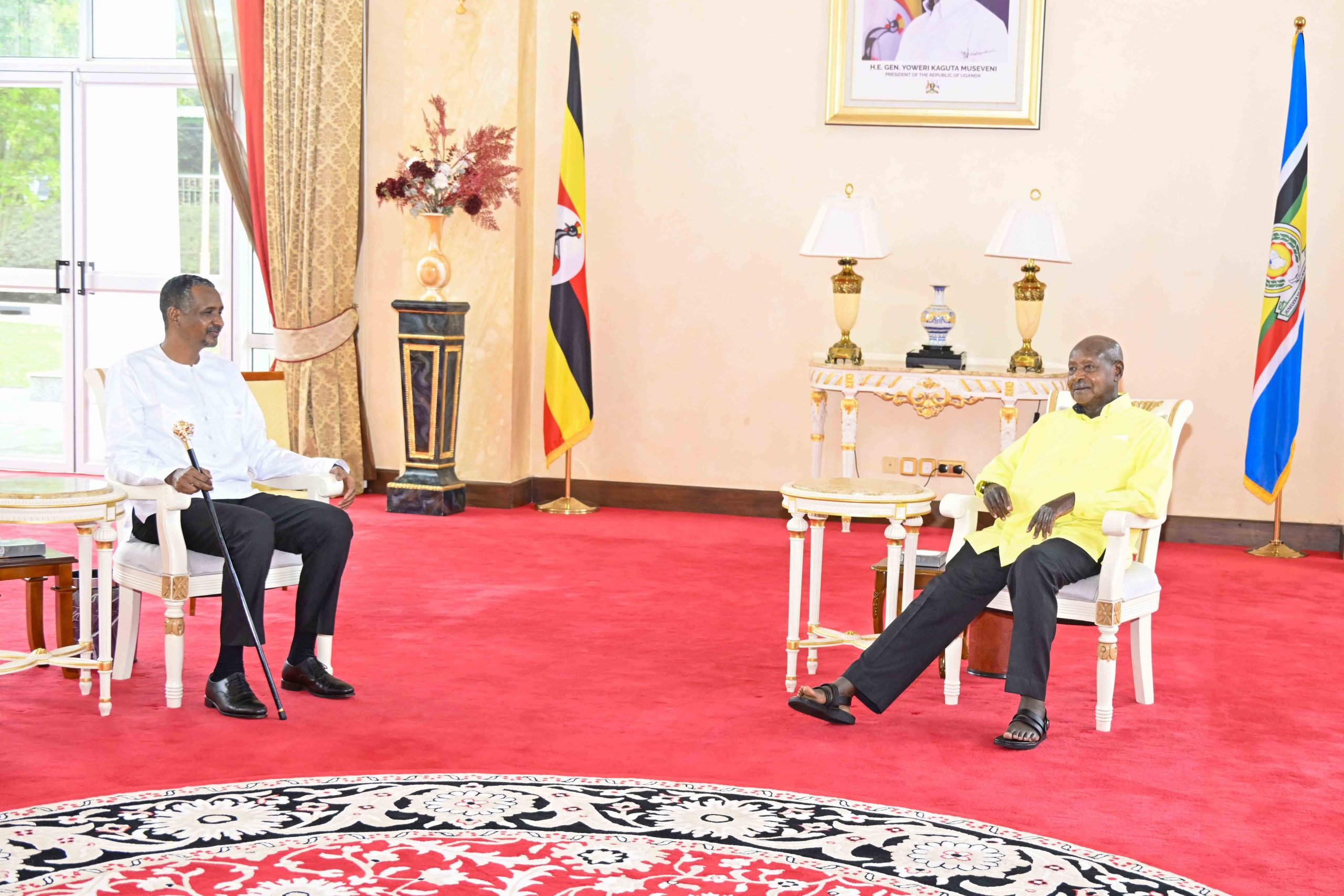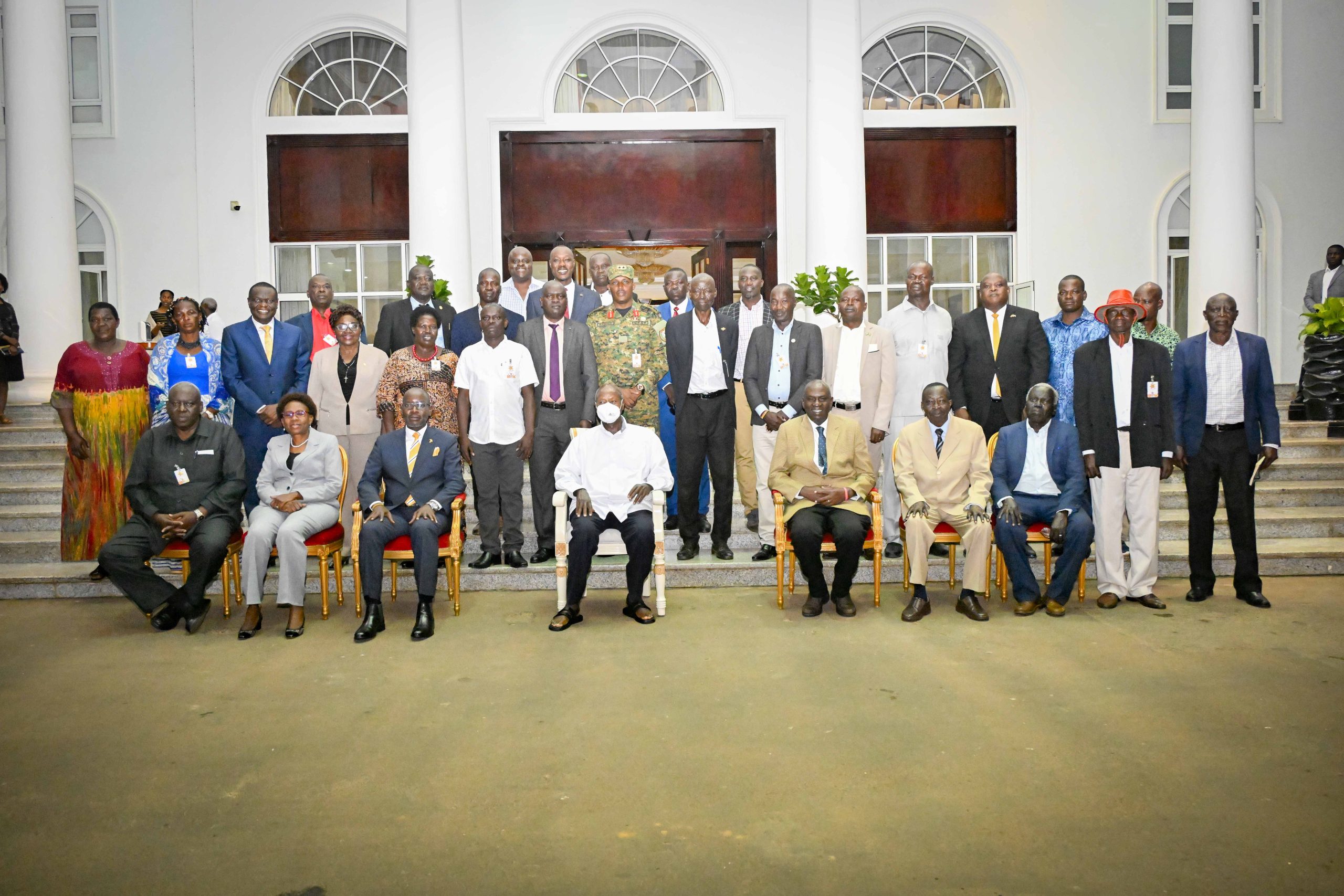BY
H.E YOWERI KAGUTA MUSEVENI
PRESIDENT OF THE REPUBLIC OF UGANDA
DURING
CELEBRATIONS TO MARK HIS 80TH BIRTHDAY
IN
KIJAGUZO – LUWERO DISTRICT
ON
15TH SEPTEMBER, 2024
Her Excellency the Vice President;
Rt. Hon. Speaker of Parliament;
His Lordship the Chief Justice;
All the other Leaders: Political, Religious, Cultural, Business, Military and Civic;
The Wanainchi of Luwero Triangle and all the Ugandans.
I greet all of you and I thank you for coming to join my family in celebrating my 80th birthday.
First and foremost, I thank God for giving me life and all the blessings He has showered on me, my family, the NRM comrades, the Ugandans and the Africans over these 80 years, numerous challenges notwithstanding.
It must have been by God’s design that in 1944, I was born among the Banyankore-Bahororo living in the Savannah – highland – Forest area that the colonial borders put the bigger part of in Uganda and some parts in Rwanda (Omutara) and Tanzania (Kibumbiro – the Kagyera Salient).
The Banyankore–Bahororo, were people deeply steeped in wealth – creation and a rules-based social order. Anybody that was not involved in wealth–creation or did it negligently, was regarded as a social misfit – omubaagyi (a squanderer of wealth), omugara (lazy), ekirare (a vagabond), etc.
The Banyankore–Bahororo, were engaged in the following emyooga: okuriisa (cattle-rearing); okuhiinga (cultivating); okuheesha (black- smithing); okujuba (fishing) a bit; okutanaga (making bows and arrows); okubaija (carpentry); okunogoora (okubuumba, pottery); okukomaga (bark-cloth making) – although our Bakookyi neighbours and Bahaya from Tanzania, were the main suppliers of bark cloth, etc., etc.
Each group, would excel in their mwooga and through okuchurika (barter trade), they would get from their neighbours what they did not produce and give them what they produced.
These societies of the Great lakes – Ankole-Mpororo, Buganda, Bunyoro, Karagwe, Rwanda, etc., ─ were so advanced, that the early European travelers that came to these areas, were amazed by the level of production.
I will quote for you what HM Stanley wrote in the years 1887-1889, when he passed through the Bunyoro-Ankole area.
On page 298 of his book entitled: In Darkest Africa, Volume II by Henry M. Stanley, he wrote as follows: “A march of an hour and a half in the afternoon, apparently not far from the river, brought us to the populous district of the Babusesse. The banana plantations were very extensive, reminding me of Uganda and their shades covered a multitude of huts (1887 December 5th – Babusesse). Fields of millet and seseme, plots of sweet potatoes, occupied the outskirts of these plantations, and there was ample evidence roundabout that the land was thickly peopled and industriously cultivated.”
Later on, while travelling through the Rwizi area of Ankole, on pages 371-372 of the same book, he wrote as follows: “Crossing a narrow neck of land, descended into the basin of the Rwizi. By degrees the misty atmosphere of this region was clearing and we could now see about five miles distance, and the contour of the pastoral plateau of Ankori. It was not by any means at its best. It was well into the droughty season. The dry season had commenced two months previously. Hilly range, steep cone, hammock and plain were clothed with grass ripe for fire. The herds were numerous, and all as fat as prize cattle. In the valley, we had passed over 4,000 cattle of the long-horned species. The basin of the Rwizi, which we were now in, and which was the heart of Ankori, possessed scores of the finest herds of cattle I had never seen before.”
As you will see later, this heritage of being part of the wealth creation society, shaped my attitudes to society, politics and the World.
Secondly, the Banyankore-Bahororo society, was a rules-based society. We have a comprehensive code of life for everything – the way you talk, the way you sit, the way you eat, the way you relate to others, the way you fight, etc., etc.
The modern Ugandans, including the religious leaders, could do well to attend to this aspect. It is alright to talk about general principles about discipline, spirituality, etc.
However, the question is: “What are the details?” I see a big gap there.
By going to the school system, I benefited a great deal through reading the Bible, studying history, geography, nature study [science], biology, politics, etc.
By 1956, still at Kyamate Primary School, in Primary Four, I had started following global events. Through a Runyankore language newspaper, Wamanya, I followed the Suez Crisis and the resignation of Anthony Eden as the PM of the UK. There was a globe in one of the class rooms. I was surprised to see much of the globe coloured red, which showed the expanse of the then USSR. Who were the USSR? We were told that Rasha (Russia), was a very powerful country.
Still at Kyamate, through the wonderful Wamanya, I, partially, followed the story of the Ugandan football team that went to England to play football, bare-footed, a phenomenon that surprised the British.
By the time I arrived in Mbarara High School in 1959, for Junior Secondary one, I had mastered all the indigenous technology of cattle keeping and crops husbandry.
However, when I visited the Mbarara Stock Farm, I discovered that we needed to up-grade our production practices – introduce rotational – grazing, fencing our land, killing ticks, growing crops in lines, making water retention trenches in the gardens (empazo), etc. When I went to Ntungamo for the April holidays, I told my father about this gap.
The eight years I spent in Mbarara, added a lot to my knowledge and attitudes. I knew a lot about the whole World – the Greek Empire, the Roman Empire and its collapse, the Egyptian Civilization, the Dark Ages in Europe, the Renaissance, the Steam Engine,the Industrial Revolution, the Slave Trade, Colonialism, etc.
Therefore, by 1966, when I was 22 years old and had just finished the A-level, I had six positions in my head:
First, I was an expert indigenous wealth creator who had now been exposed to more Science: the invisible world of the microbesthat were both for evil (germs) and for good (fermentation, digestion etc.); the barbed wire (sengenge) to control the movement of cattle instead of Museveni being the barbed wire to control the cattle that I had been for most of my life, excepting for the 4 years when I was looking after calves, too young to look after cattle; better agro–practices; the need for joining the money economy; etc.
This modernized wealth creator and his compatriots, appreciated all the other wealth-creators and service providers. We had no time for sectarianism and identity chauvinism, even when we valued our group cultures.
Our cattle were being bought by Walusimbi Mpanga from Kampala for the Kampala market, Bukyenya (Bukenya) from Mbarara for the Mbarara market and by Shear from Ishaka for the Kilembe mines beef market and not by Banyankore. In other words, the other Ugandans were contributing to our prosperity.
The four shops of our Indians – Budala, Haari, Mamudali and another one whose names I do not remember plus the two Arab shops of Bumbakare and his colleagues, were bringing to us cattle salt, soap, textiles, paraffin, etc and buying, on a small scale, our milk, ghee, beans, g-nuts, etc.
When my sister, Dr. Kajubiri, got polio in 1955, the Banyankore promptly called it a Banyarwanda disease, known as embasa in Kinyarwanda. Only the Banyarwanda could treat it.
Therefore, my mother and Kajubiri, had to spend some months at Rwabaara, with a Munyarwanda known as Kamuguunda, where she was being administered with herbs that indeed saw her 85% recovery – both arms, one leg and half leg, recovered completely. The good byaanzi (milk pots), amachuba (wooden pails), cow-bells (emirebe), were coming from Igara (Busheenyi). The emiriinga (brass bracelets), engoro (ivory bungles), etc., were coming from Congo, etc.
It was, therefore, very sad that, starting with 1954, some opportunists, started spreading the opportunistic politics of sectarianism of DP for Catholics, UPC for Protestants, KY for Baganda Protestants and Moslems. These opportunists, took us back to the mistakes of the bankrupt Kings that had so divided Africa, that the Imperialists could manage to conquer the whole of Africa by 1900, except for Ethiopia.
Therefore, by this time, I knew that we had a lot of potential and there is nothing that Uganda could not achieve.
As already pointed out above, I despised sectarianism and could see that it is parasites that believe in sectariasm.
Wealth creators, appreciate all genuine wealth creating partners.
Secondly, again, as already alluded to above, I was sure that through equitable interaction with other countries, Uganda could stand on its own.
Indeed, I never ate bread (omugaati), until 1958, when I was 14 years old, when I tasted a slice of bread. My comment was: “kaninke ekyishaankara – a honey comb without honey”. It was not as tasty as our foods – milk, beef, oburingyiri (blood meals), cassava, bananas with sauce, millet, etc.
I tasted rice for the first time at Mbarara High School, when I was 15 years and it did not and has never compared well with our indigenous foods.
Therefore, by this time, I was sure that Uganda yemaririra (Uganda is self sufficient).
Thirdly, being both steeped in our indigenous culture and being a wealth creator, I strongly believed in Pan-Africanism – following the strategy of Mwalimu Julius Nyerere of creating the East African Common Market and Federation so as to give the wealth creators enough market for goods and services.
In the history lessons, I had understood the value for the wealth creators of Germany of the 39 Kingdoms of the Germans, uniting into one Germany in 1871. Also, the example of the unification of Italy, in 1861. Wealth creators, needed markets.
This is why, I put all my choices for university to the University College, Dar-es-salaam. I wanted to be near Mwalimu Nyerere and the freedom fighters of Southern Africa of that time.
These linkages with Mwalimu and the freedom fighters of Southern Africa, came in handy when it came to sorting out our internal problems in Uganda by holding to account those who endangered our future by pushing the sectarianism of tribe, religion and gender–chauvinism.
Fourthly, I strongly believed in having a family, now that I was an adolescent, whatever situation I was in – whether in peace or war. The idea of obucwheekye (being childless), was most disturbing.
I am, therefore, most grateful to God and Maama Janet, for enabling me to have children that have now given me grand-children in the midst of turbulences, initially. They are a wonderful and productive group of Ugandans.
Fifthly, from the beginning, I had contempt for educated people that only cared for the prosperity of their families. I believed in the mass-line:- prosperity for all – bonna bagaggawale; bonna bagemebwe – immunization for all; bonna basome– education for all; etc.
Indeed , between 1966 and 1971, together with some of my colleagues such as Mwesigwa Black, we moved, initially on foot, kraal to kraal, sensitizing the Banyankore in the cattle corridor to abandon nomadism and embrace modern commercial farming.
Unfortunately, Amin’s coup interfered with our work; but much of it had taken root.
When we came back in 1986, we resumed our efforts and this is the cause of the partial Revolution in the agricultural sector in the areas of dairy, beef, bananas, cassava, maize, fruits, the fisheries sector, etc.
After repeated efforts, by 2022, the homesteads in the money economy had risen to 61% while the bakolera ekidda kyoonka (subsistence actors), were only 39%. We intend to monetize the whole economy with ekibaro (otita, aimar, cura – maximizing returns).
Sixth, the fear of God is the beginning of Wisdom. In whatever I do, I try to avoid evil. Although I disagreed with the Scripture Union in 1965, I keep my belief in God and it has helped our movement and I believe that that is the reason God has continued to bless the NRA/UPDF/NRM/Uganda.
In sowing the Mustard seed, I quoted some examples of God’s direct intervention in our struggles.
It is these attitudes, that I brought into our struggles, when we had to deal with the disorientation that actors had imposed on Uganda – politics of identity, under- development, the elite line to the detriment of the mass-line, neo-colonialism and dependency, etc., etc.
The reason for bringing this function to Kawumu and Kijaguzo is to salute the heroism of the masses and the freedom fighters that used this area to defeat the mistake makers.
Kijaguzo Parish headquarters is where I would retreat to write some documents but also to get some sunshine for vitamin D because the Kitema-Masanga Forest in the valley, was always cold and the sun was blocked by the foliage.
Kawumu camps, helped us to do the following: adopt the code of conduct (Segirinya’s camp); rescue the guns dropped by Kayiira near Ddambwe before the Obotes took them (Segirinya’s camp); start addressing the mistake of killing Kashaanku; the interview with William Pike that exposed the NRA to the World; and, above all, the place at which I ordered General Saleh and Haji Kigongo to, finally, start the Western Front in the Rwenzori before I left on the 12th of March, 1985, having confirmed that Obote was about to collapse, to look for more guns to ensure that we had enough armed soldiers to stop chaos in the Country on account of a vacuum consequent to that collapse. The Segirinya camp was on Kanyanda side, just across the small valley, while the other camps were around where we are now.
There are many other landmark points in this area. Kawumu and Kijaguzo, happen to be some of them.
I am, therefore, very happy that when, as a student, I brought these attitudes to some of my fellow students, they rhythmed with their own thinking.
That is how we formed USARF (University Students African Revolutionary Front) at the University of Dar-es-salaam with linkages with Makerere University (the Rugundas) and University of Nairobi (the Mwesigwa Blacks, the Rwaherus); Fronasa during the anti-Amin struggle; UPM during the short interim period of 1979-80; and the PRA/NRA/NRM ever since 1981.
All these groups, have really been around the four ideological principles of Patriotism, Pan-Africanism, Social-economic transformation and democracy and the three historical missions of Prosperity, through wealth creation; strategic security against all threats to Africa; and using the African brotherhood to achieve the first two historical missions.
I thank, salute and congratulate all Ugandans that over the years, have rallied around these principles and goals.
This celebration of my 80 years, is not just about me but about all the resistance fighters. When we formed USARF, I was 22 years of age. This is a whole 58 years ago.
Therefore, for most of the 80 years of my life, we have been in the trenches of resistance, with the resistance fighters. The resistance fighters- past and present-you have done Uganda and Africa proud.
Therefore, fellow Ugandan, especially the NRM members, everything is now in place to implement the four principles of the NRM of Patriotism, Pan-Africanism, Social-economic transformation and democracy.
The only principle that is not fully in our hands is Pan-Africanism where we need to agree with our brothers and sisters in the East African Community about the Political Federation and with the rest of Africa on the Continental Free Trade Area.
However, that does not stop you from discussing it among the Ugandans and reaching out to the East Africans to discuss the issue instead of speaking on the behalf of foreign Parasites, all the time.
Within principles No.1 (Patriotism), No.3 (Social- economic transformation) and No.4 democracy, I encourage Ugandans to look at our heritage of wealth creation and the brother hood among wealth creators because of mutual interest and the Social-economic transformation that is concomitantto that modernized wealth creation.
With principle No.4 (democracy), we must remove the pollution of using money in politics. Let all leaders of NRM, concentrate on implementing the mass line and leading our people in using Government programmes to join the 4 sectors of Commercial Agriculture, Manufacturing, Services and ICT.
The NRM has already brought a lot of developments in this area of the Luwero Triangle. Our war zones of Abdul Nasser, Mondlane, Lutta, Kabalega, Nkrumah, Ngoma unit, are now active Commercial agriculture areas or are studded with Clusters of industries (factories) – look at the Kawanda-Matuga-Miggade-Sanga area, Kapeeka, the Lukoola, Ngoma, etc.
Kapeeka Industrial Park is now employing 3,828 people and when fully developed, it will employ 20,000 people.
Our supporters, staying nearby, even if they are not working in these factories, they have a ready market if they have what to sell – vegetables, food, fruits, shop goods etc.
The Ngoma area has now got 68 coolers of milk, handling 2.5 million litres of milk per day. Those who agreed to grow coffee, are benefitting.
Therefore, the NRM cadres, should expose those charlatansthat confuse our people so that they keep away from development.
I am told that in the Masaka area when the OWC was distributing coffee seedlings, some people were calling the seedlings: “Miyini ya Nkumbi’’ – that seedlings would become mere stems without value like the wooden handles of hoes – emihini.
Those people are now regretting because those who listened are now benefitting.
Long live the NRM,
Thanks for coming.
Yoweri K. Museveni
P R E S I D E N T
